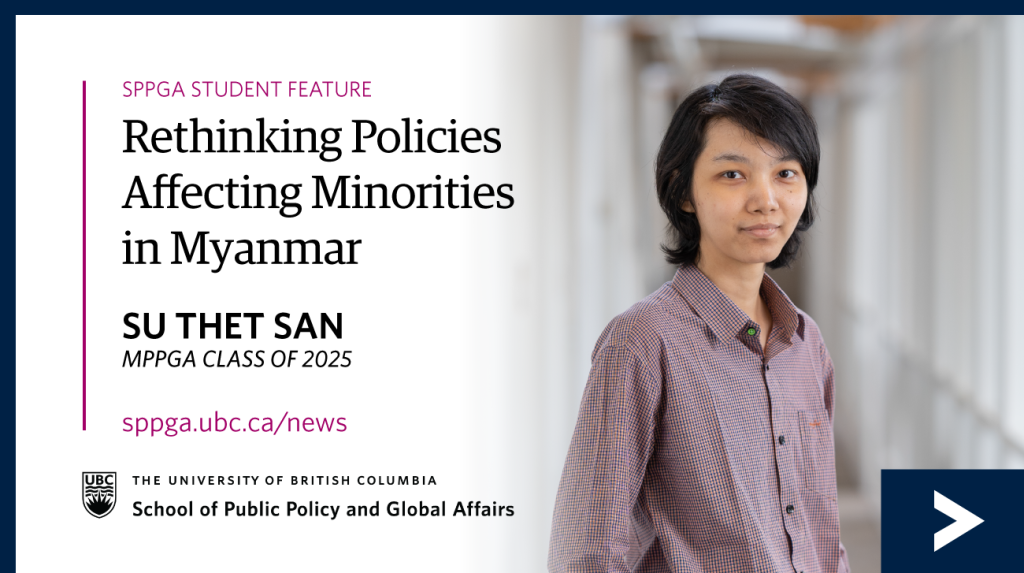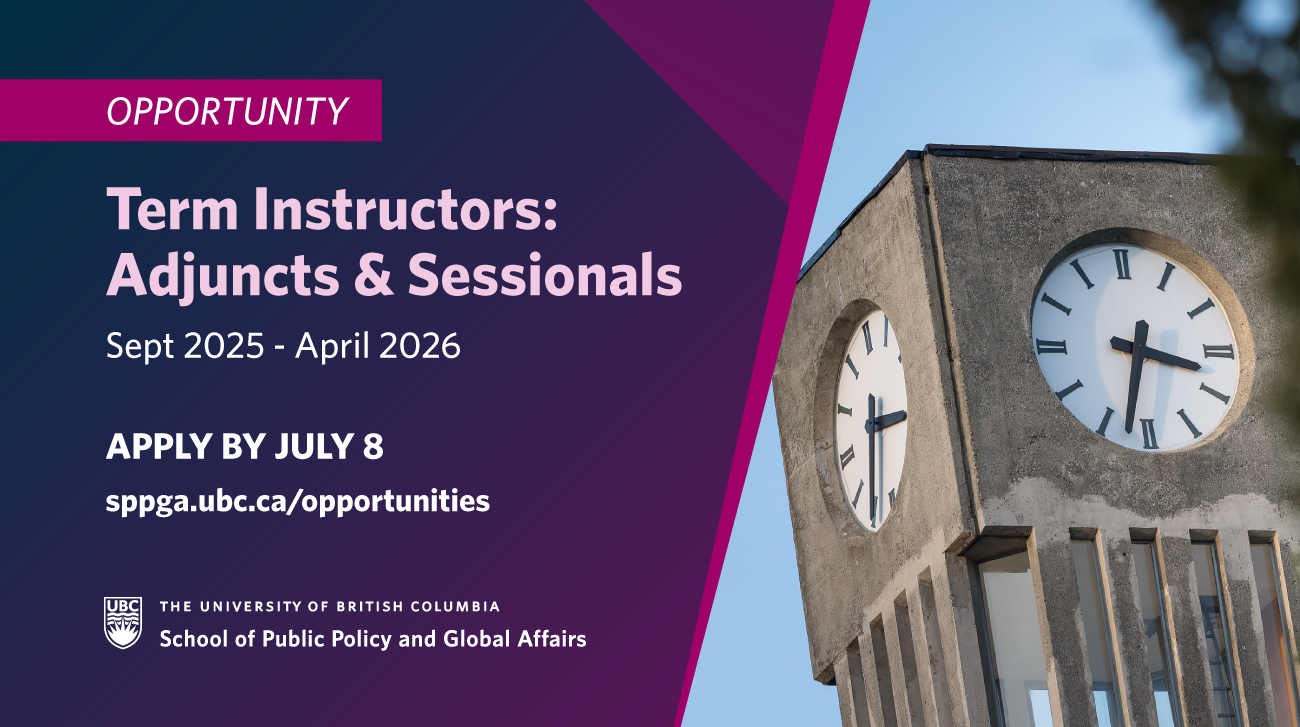

“The MPPGA program at UBC seemed like the perfect fit to equip me with the skills and knowledge to develop effective, inclusive policies for a post-coup Myanmar.”
Meet Su Thet San, a second-year student in our Master of Public Policy and Global Affairs Program. Before joining the MPPGA Program, Su Thet worked at a local NGO in Myanmar and their current research is deeply informed by this experience. They have a strong interest in designing policy interventions that counter current inequalities faced by ethnic and racial minorities with Myanmar. Su Thet has also presented their research at a workshop for young scholars and leaders held by the Myanmar Initiative at SPPGA. At the close of this event we spoke to them about their research and their experience with the MPPGA program so far.


Su Thet San at the Young Scholars and Leaders Workshop
Could you tell us more about your current work and your research presentation at the workshop?
My research, titled “Rethinking Policies Affecting Minorities in Myanmar,” delves into how policy failures and gaps have led to social divisions and grievances among Myanmar’s minority populations. The country is diverse in terms of race, ethnicity, and religion, but historical and ongoing policy missteps have deepened these divisions and heightened tensions. Government policies have often marginalized minority communities by neglecting their unique needs and perspectives. For instance, the lack of quality education, healthcare services, and proper transportation in ethnic minority areas has disproportionately disadvantaged these groups, causing economic disparities and social unrest. Through my research, I aim to uncover the subtle ways policies impact various segments of the population. By exposing the gaps and shortcomings in current policies, I hope to guide the creation of more inclusive and effective policy frameworks that can foster social cohesion, alleviate grievances, and enhance the overall stability and development of Myanmar.
How did you arrive at your current research area? Do your previous experiences in journalism and the NGO sector inform your work?
I found my way to my current research area through a mix of professional experiences and personal learning over the years. Before starting the MPPGA program, I worked with NGOs in Myanmar, dealing with issues like democratization, peace, conflict, and social cohesion. These roles were eye-opening and let me see firsthand the challenges Myanmar faces, such as armed conflict, violence, poverty, and weak state institutions. While working on these issues, I noticed how both military regimes and civilian governments often failed to properly address the needs and rights of ethnic minorities. Policies lacked inclusivity and good governance, worsening social divisions and grievances among minorities. This realization fueled my passion to help create a peaceful and harmonious society in Myanmar, where everyone is treated equally, regardless of ethnicity, race, religion, or gender. The 2021 military coup made things even worse, with more violence, eroded trust in state institutions, and a crumbling rule of law and economy. These complex problems highlighted the need for innovative policy approaches. So, my research aims to address this by examining the detailed impacts of current policies on minority populations and developing more inclusive and effective policy frameworks to promote social cohesion and stability in Myanmar.
How did you come to consider the MPPGA program and how has your experience in the program been thus far?
I chose the MPPGA program because of its comprehensive curriculum and interdisciplinary approach, blending political science, economics, and public administration. The program focuses on global issues and prepares students to tackle complex challenges, while the core courses provide a solid foundation in both theoretical and practical aspects of public policy. The escalating issues in Myanmar, especially after the 2021 military coup, highlighted the need for innovative approaches to address the country’s complex problems. The MPPGA program at UBC seemed like the perfect fit to equip me with the skills and knowledge to develop effective, inclusive policies for a post-coup Myanmar.
So far, my experience in the MPPGA program has been profoundly enriching. The courses have given me a strong understanding of policy frameworks and analysis tools, as well as research methods that are crucial for addressing real-world policy challenges. Beyond academics, the program has provided numerous opportunities for professional growth. Engaging with professors and peers from diverse backgrounds has broadened my perspectives and enhanced my problem-solving abilities. Living in Vancouver and studying at UBC, known for its cultural diversity, has been invaluable. Interacting with people from various countries who share a common goal of global betterment has been rewarding and enlightening. Overall, it has been an inspiring journey, and I am confident that the knowledge and experiences gained from this program will help me make a meaningful impact in Myanmar and beyond.
What are some future directions that you envision taking with your research and professional work?
In the future, I envision my research expanding to explore more comprehensive and innovative policy solutions that address the root causes of social divisions and grievances among minority populations in Myanmar. I aim to delve deeper into the specific impacts of different policy areas, such as education, healthcare, and economic development, on various ethnic groups. Professionally, I aspire to work as a policy analyst within international organizations or think tanks where I can influence the development and implementation of inclusive policies. My goal is to contribute to the creation of frameworks that promote social cohesion and equitable development not only in Myanmar but also in other contexts facing similar challenges. By leveraging the skills and knowledge gained from the MPPGA program, I hope to drive positive change and foster good governance practices that support the stability and prosperity of diverse communities.


